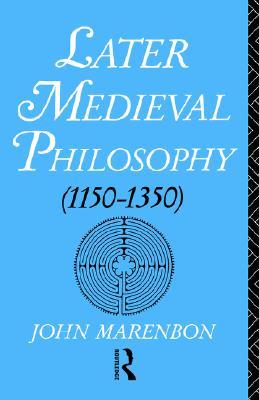Author: John Marenbon
Rank:
Rating:
Original Rating:
Pop Rating:
Genres/categories:
Philosophy, Non Fiction
Purchase/reserch links:
ISBNs:
9780710202864
0710202865 |
|  This introduction to philosophy in the Latin West
This introduction to philosophy in the Latin West
between 1150 and 1350 follows on from John
Marenbon's previous book, Early Medieval
Philosophy 480-1150 (Routledge & Kegan Paul,
1983). It combines an historical approach, which
concentrates on the sources, forms and backgrounds
of the medieval works, with philosophical analysis
of thirteenth- and fourteenth-century writing in
terms comprehensible to a modern reader.
Marenbon believes that it is only through this
conlbination of approaches that a satisfactory
understanding of the subject can be reached.
Part I provides the reader with the most
important information needed in order to be able to
understand medieval thinkers' arguments in their
intellectual and historical context. It examines the
structure of courses in the medieval universities; the
methods of teaching; the forms of written work;
the logical techniques used for argument and
analysis; the translation and availability of Ancient
Greek, Arab and Jewish philosophical texts; the
challenges the new material presented and the
various ways in which western thinkers responded
to them.
Part II examines in detail one particular,
important problem in later medieval thought: the
nature of intellectual knowledge. It explains the
arguments given by Aristotle, his antique
commentators and the Arab philosophers Avicenna
and Averroes, and then traces - in terms accessible
to the modern philosopher - how a series of
Western thinkers developed, modified or rejected
them: William of Auvergne, Thomas Aquinas,
Martin and Boethius of Dacia, Radulphus Brito,
Henry of Ghent, Duns Scotus and William of
Ockham.
|